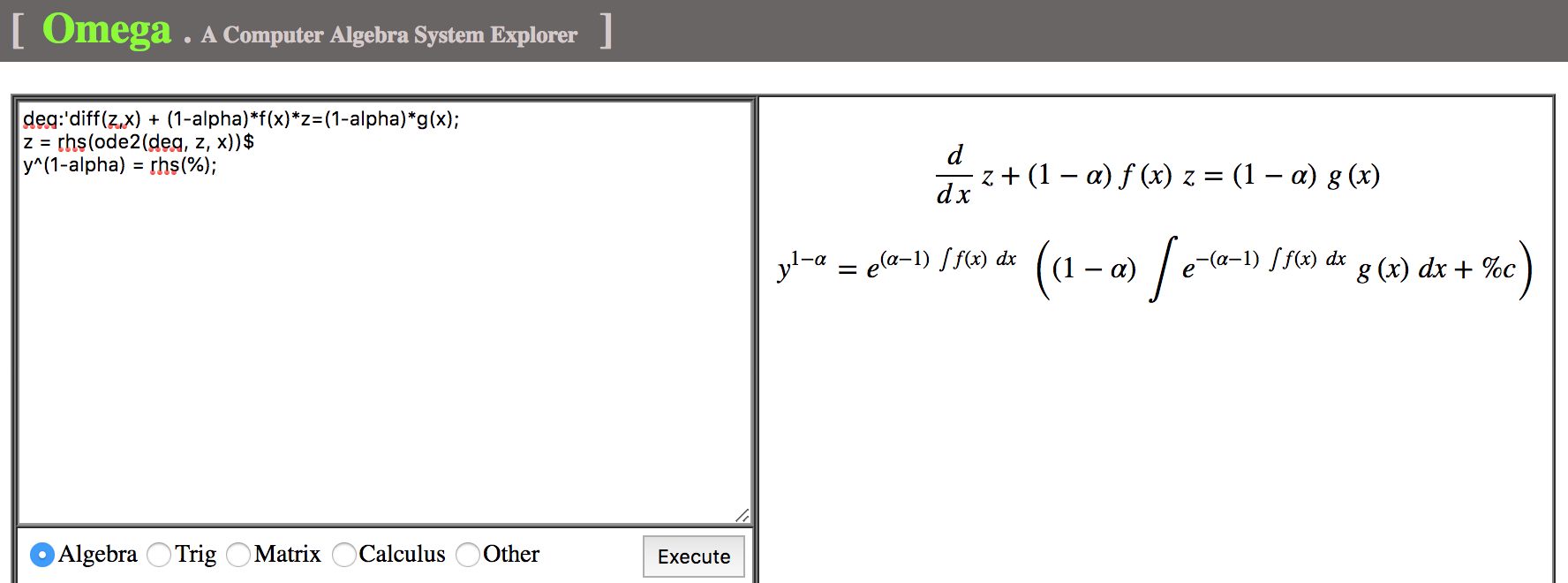
The differential equation
where and
, is known as the Bernoulli’s equation.
When is an integer, (1) has trivial solution
.
To obtain nontrivial solution, we divide each term of (1) by to get,
Since ,
(2) can be expressed as
which is
.
Multiply throughout,
Let , (3) is transformed to a first order linear equation
,
giving the general solution of a Bernoulli’s equation (see Fig. 1)

Fig. 1
For examples of Bernoulli’s equation, see “What moves fast, will slow down” and “An Epilogue to ‘A Relentless Pursuit’“.



